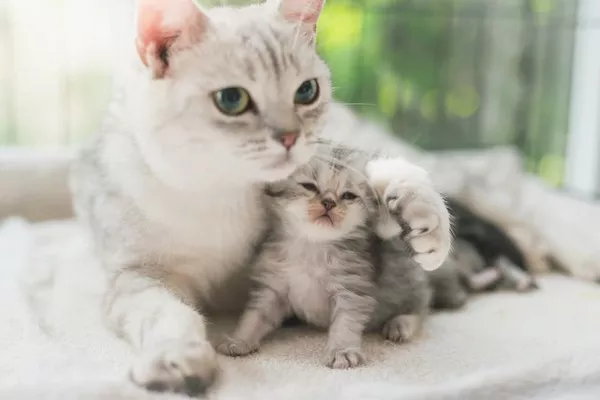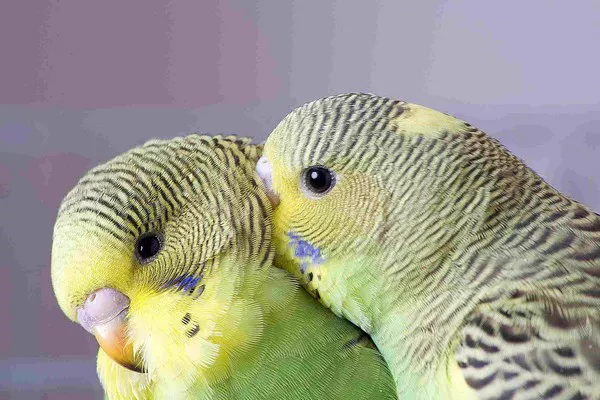Abyssinian cats, with their striking appearance and captivating personalities, have been a beloved breed among cat enthusiasts for decades. As any potential cat owner might wonder, the question of whether Abyssinian cats can be indoor cats often arises. In this article, we will delve into the world of Abyssinian cats, exploring their background, personality traits, and needs to determine whether they can thrive as indoor cats.
The Abyssinian Cat: A Brief Overview
To understand whether Abyssinian cats can be indoor pets, it’s important to first learn about their history and origins. The Abyssinian cat‘s ancestry can be traced back to ancient Egypt, where they were considered sacred and highly esteemed. These cats were often depicted in ancient Egyptian art, a testament to their status in society.
Personality Traits
Abyssinian cats are known for their unique personality traits that can greatly influence their suitability as indoor pets. These feline companions are intelligent, curious, and active.
The Abyssinian’s Need for Stimulation
The Abyssinian cat’s inquisitive nature necessitates an environment that provides ample mental and physical stimulation. If they are confined to an indoor space without adequate entertainment, they may become bored and restless, leading to unwanted behaviors.
Exercise Requirements
One of the primary concerns for potential Abyssinian cat owners is their exercise needs. This breed is exceptionally active and enjoys playing, climbing, and exploring.
Indoor Enrichment for Abyssinian Cats
To address the exercise and stimulation needs of Abyssinian cats, owners should consider various indoor enrichment options. This may include interactive toys, climbing structures, and puzzle feeders.
The Importance of Social Interaction
Abyssinian cats are not only active but also highly social animals. They tend to form strong bonds with their human companions and thrive on interaction and attention.
Socialization and Companionship
For those considering keeping an Abyssinian cat exclusively indoors, it’s crucial to understand the importance of socialization and companionship in their lives. Loneliness can lead to stress and behavioral problems in these cats.
Abyssinians and Other Pets
If you have other pets in your home, especially other cats, it’s essential to consider how Abyssinians will interact with them. Proper introduction and supervision are key to maintaining a harmonious multi-pet household.
Health Considerations for Indoor Abyssinian Cats
Caring for an Abyssinian cat, whether indoors or outdoors, involves several health considerations. It’s important to be aware of potential risks and take preventative measures.
Health and Wellness
This section will explore the health aspects of Abyssinian cats, including common health issues and preventive measures that are particularly relevant for indoor cats.
Grooming Needs
Abyssinian cats have a short, dense coat that requires regular grooming to keep it in top condition. Grooming is an essential aspect of their care, whether they are indoor or outdoor cats.
A Happy and Healthy Life
Ensuring the well-being of your Abyssinian cat while keeping them indoors involves creating a safe and stimulating environment. Here, we discuss practical steps to make indoor life enjoyable for these energetic felines.
Conclusion
In conclusion, Abyssinian cats can be kept as indoor pets, but it requires dedication and effort to meet their needs for physical and mental stimulation, social interaction, and health care. Ultimately, whether an Abyssinian cat thrives indoors or outdoors depends on the individual cat and the commitment of its owner to provide a safe and enriching environment. Understanding their unique personality traits and making the necessary accommodations will help ensure a happy and healthy life for your Abyssinian companion.
Here are some essential facts about the grooming needs of Abyssinian cats:
1. Short, Dense Coat: Abyssinian cats have a short and dense coat that lies close to their body. Despite its short length, their fur has a fine texture and is quite soft to the touch.
2. Low Shedding: Compared to some other breeds, Abyssinians are considered low-shedding cats. Their fine fur sheds less than longer-haired breeds, which makes them a popular choice for people concerned about cat allergies.
3. Regular Brushing: While Abyssinians may not shed excessively, they still benefit from regular brushing. Brushing helps remove loose fur, dirt, and debris from their coat, and it also stimulates blood circulation in the skin.
4. Weekly Grooming: To maintain their coat, Abyssinians typically require weekly grooming sessions. A soft bristle brush or a rubber grooming mitt can be used to gently remove loose hair and distribute natural oils, keeping their coat shiny and healthy.
5. Natural Oils: Abyssinian cats have a unique coat structure that allows their fur to naturally repel dirt and stay relatively clean. Brushing helps distribute the cat’s natural oils, enhancing this self-cleaning mechanism.
6. Bathing Rarely Necessary: Due to their ability to keep themselves relatively clean, Abyssinian cats rarely need baths. However, if they get into something particularly messy or have a skin condition, a bath may be necessary.
7. Ear Cleaning: It’s important to pay attention to their ears, as Abyssinians are prone to earwax buildup. Regular ear cleaning with a veterinarian-approved solution can help prevent ear issues.
8. Nail Trimming: Regular nail trimming is important for all cats, including Abyssinians. Invest in a pair of cat-specific nail clippers and trim their nails as needed to prevent overgrowth and associated problems.
9. Dental Care: Like all cats, Abyssinians can be prone to dental issues. Regular dental care, such as providing dental treats or brushing their teeth, can help maintain their oral health.
10. Health Check During Grooming: Grooming sessions are an excellent opportunity to check for any signs of health issues. While brushing, look for lumps, bumps, or changes in the skin, and observe your cat’s overall condition.
11. Tail Maintenance: Abyssinian cats have a bushy tail that may require occasional maintenance. Ensure there are no mats or tangles in the tail fur and gently comb or brush it to keep it in good shape.
12. Professional Grooming: Some Abyssinian owners opt for professional grooming services for their cats, especially before cat shows. Professional groomers can provide specialized care to keep the coat in top condition.
13. Seasonal Shedding: While Abyssinians don’t have heavy seasonal shedding, some cats may experience a mild increase in shedding during seasonal changes. Increased grooming during these times can help manage loose fur.
In conclusion, while Abyssinian cats are relatively low-maintenance in terms of grooming compared to long-haired breeds, they still require regular care to keep their coat, ears, nails, and overall health in good condition. Regular grooming sessions not only benefit their physical well-being but also provide quality bonding time between you and your feline companion.
Related Topics:
What is a neon abyssinian cat worth
The Serene Nature of Abyssinian Cats: Are They Calm Companions?
The Enigmatic Abyssinian Cat: Do They Purr?


























